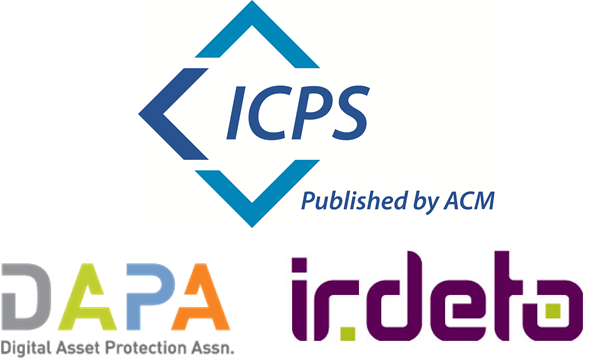 |
||||||||||||||
|

Joint PPREW / SSP Workshop
Hilton Los Angeles/Universal City, Los Angeles, CA
 December 8, 2015
December 8, 2015
Collocated with
ACSAC
2015
Publication

Accepted papers are now published in the
ACM Digital Library.
Early Registration Information
Early registration deadline: November 15, 2015
PPREW-5 is collocated with ACSAC-2015, held at the Hilton Universal City near Los Angeles, CA, USA.
Visit the ACSAC registration site for arrangement information.
Registration cost for PPREW of $380 (early) / $430 (late) covers breakfast, lunch, and a welcome reception that evening. Group hotel rates are available for the conference.
Joint Workshop
A joint workshop on Program Protection and Reverse Engineering (PPREW) and Software Security and Protection (SSP) will be held this year, bringing two communities of interest together. Software security is a discipline that lies at the crossroads of security, cryptography, networks, software engineering, computer architecture, operating systems, and compiler design. Program protection and reverse engineering techniques both find their practical use in malware research and analysis as well as legitimate protection schemes for intellectual property and commercial software. The joint workshop will focus on how to protect software from tampering, reverse engineering, and piracy. Strongly encouraged are proposals of new, speculative ideas; evaluations of new or known techniques in practical settings; and discussions of emerging threats and problems in metrics, tools, and procedures for evaluating tamperproofing, watermarking, obfuscation, birthmarking, and protection algorithms in general. Likewise, reverse engineering of low-level constructs such as machine code or gate-level circuit definitions through static and dynamic analysis is geared to recover higher levels of abstract information to determine a program’s function as well as to classify it with existing similar code (which is typically malicious). Both program protection and reverse engineering techniques are utilized for legitimate and illegal purposes. Theoretically, protection is seen as impossible in the general case but the promise of mathematically based transformations with rigorous cryptographic properties is an area of active interest. Given enough time and resources, reverse engineering and de-obfuscation is assumed to be achievable.
The joint PPREW/SSP workshop will provide a discussion forum for
researchers that are exploring theoretical definitions and frameworks, implementing and using practical methods
and empirical studies, and those developing new tools or techniques in this unique area of security. We expect
the workshop to provide exchange of ideas and support for cooperative relationships among researchers
in industry, academia, and government.
Topics of interest include, but are not limited to:
- Security modelling
- Protection metrics and measurements
- Obfuscation / deobfuscation (polymorphism)
- Tamper-proofing
- Hardware-based protections
- Protection profiling, verification, and evaluation
- Theoretic
analysis
frameworks:
- Abstract Interpretation
- Homomorphic Encryption
- Term Rewriting Systems
- Machine Learning
- Large Scale Boolean Matching
- Static/dynamic analysis techniques
- New cutting-edge protection technologies
- Diversity metrics and measurements
- Man-at-the-end (MATE) attack technologies
- Software watermarking
- Digital fingerprinting
- Reverse engineering tools / techniques
- Program / circuit slicing
- Component / functional Identification
- Source code (static/dynamic) analysis
- Information hiding and discovery
- User interface design for controlling protection
- Virtualization for protection and/or analysis
- Forensic and anti-forensic protection
- Moving target and active cyber defense
Important Dates
| Paper Submission: | September 27, 2015 |
| Author Notification: | October 25, 2015 |
| Camera Ready Version: | November 20, 2015 |
| Workshop: | December 8, 2015 |
Submissions handled through EasyChair.
![]()